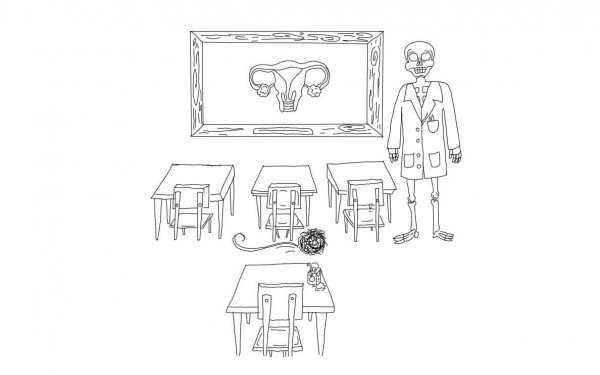Birth Control Isn’t One Size Fits All
There’s been a recent rise in the popularity of intrauterine devices, and I’ve been receiving a lot of questions on this “new” method of birth control. This comes as a surprise to me since IUDs aren’t new at all, and have in fact been available for over 20 years. Why are so many women only now hearing about a very effective, easy to use and widely available method of birth control?
The number of women lacking information about their birth control options is worrisome, and a symptom of a much bigger issue in Quebec’s healthcare system. Next week’s column will be an overview of IUDs, but first this week’s column will explore why information on them and many other areas of sexual health can be difficult to come by.
For most people preventative and long-term healthcare comes from family doctors who know their patient history, have been with the person for a long time and are available for fact-checking and follow-ups. Quebec’s current shortage of general practitioners already makes it hard for people to find a long-term family doctor. In addition, the need for a GP’s referral to get an appointment with a gynecologist makes accessing sexual health services more difficult in the province.
However, routine sexual health care and information don’t have to come from specialized gynecologists. I recently had the opportunity to chat with Dr. Cleve Ziegler, the director of gynecology at the Jewish General Hospital, who explained that GPs in other provinces usually handle routine care such as pap tests, pelvic exams, and STI testing.
The GP is trained to do this and already has your medical history, and this frees up gynecologists to focus on their specialization: the treatment of gynecological issues and complications, such as cysts and abnormal paps rather than prevention.
Quebec’s GP shortage complicates this situation because many people don’t have a GP to begin with. For this and other reasons, many Quebec women start by accessing sexual health services through CLSC youth clinics. They’re easy to access, offer much-needed services and referrals when necessary, and are youth-oriented, so the health professionals focus on non-judgmental care.
However, by virtue of the fact that they’re youth clinics, the main criteria to access them is being between 12 and 24 years old. Due to this, many women find themselves cut off with nowhere to go next after years of consistent access to sexual health services.
And so you probably know how this goes. Many women end up only having checkups at walk-in clinics when they already have symptoms, and dealing with sexual health at places that they might not even return to. Our medical histories end up scattered at clinics across the city, instead of with one designated health professional.
Women who use CLSC youth clinics are also likely put on the pill once they become sexually active, without ever being informed of other available options. Oral contraceptives are often first recommended because they are easily reversible and, unlike IUDs, can be managed or stopped by a patient at any time without physician intervention. The recommended option rarely has anything to do with what might be best suited for an individual.
This is a problem because birth control is not a one-size-fits-all model. Women should be informed about all options available to them and any relevant side effects in order to recognize and know when it might be time to try a different method or brand, but this is difficult to do without a designated health professional following your file.
For some women, that right fit could be the IUD, but they may never find out because so many stick to a method with unpleasant side effects simply because it was the one arbitrarily chosen for them when they were 17, and they don’t know of other options they can try that might be more pleasant than their current choice.
If you can’t find a long-term doctor, or the one you have isn’t very informative, then don’t rely on them to inform you—start informing yourself instead. Learn about your options before heading to a health professional, and ask questions so that you don’t walk away with a prescription for something you know nothing about.
There are many reliable resources for this information, such as sexualityandu.ca, call-in services like Head and Hands, and even text-in services like SextEd. Use them, share them and start managing your own health!
Submit your question anonymously at sex-pancakes.com and check out “Sex & Pancakes” on Facebook. Head and Hands: Ask for Jos at 514-481-0277 Mondays 11 a.m. to 1 p.m., Wednesdays 3 p.m. to 5 p.m. or Thursdays 2 p.m. to 4 p.m.
Got a quick health question? Text SextEd at 514-700-0445 for a confidential answer within 24 hours!







